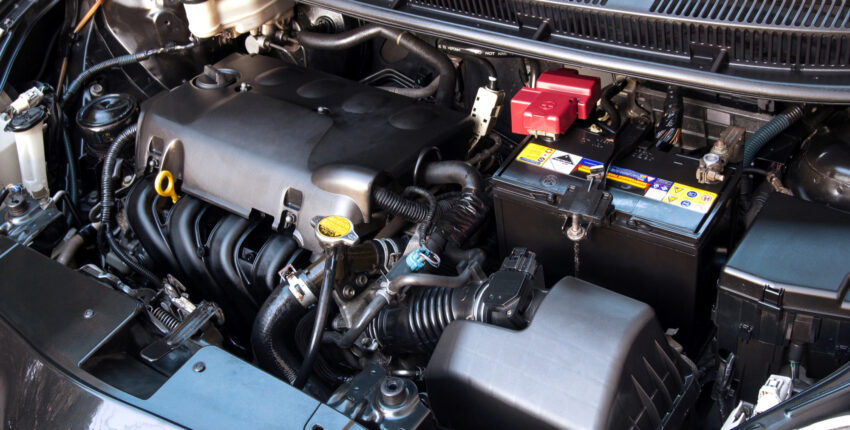Your car’s alternator and starter are two of the most important—but often overlooked—components under the hood. Without them, your engine can’t run, your battery won’t charge, and your morning commute can turn into an unexpected breakdown.
Most drivers don’t think about alternator and starter maintenance until something goes wrong. But with a little knowledge and some simple habits, you can keep these components running strong for years. At Oklahoma’s Mobile Auto Repair Specialist, we’ve seen firsthand how preventable issues can cause major headaches—and we’re here to help you avoid them.
Here’s what you need to know to get the most life out of your alternator and starter.
What Do the Alternator and Starter Actually Do?
Before diving into the tips, it helps to understand the role these two parts play in your vehicle’s electrical system:
- The Starter cranks your engine to life every time you turn the key or press the start button. It draws a hefty surge of electricity from your battery and sets the engine in motion.
- The Alternator takes over once the engine is running. It charges your battery and powers all of your car’s electrical systems—from headlights to the infotainment screen to your phone charger.
These components work together like a tag team. The starter gets the engine running, and the alternator keeps it going. If either fails, you could find yourself stranded in a parking lot or driveway.
Signs of a Failing Alternator or Starter
Alternator and starter issues rarely come out of nowhere. Your vehicle usually gives you some early warning signs, including:
- Slow or labored cranking when starting the car
- Clicking sounds when you turn the key
- Dim or flickering headlights
- Electrical accessories acting weird (radio cutting out, dash lights flickering)
- Battery warning light on the dashboard
If you catch these symptoms early, a mobile technician like Jake from Oklahoma’s Mobile Auto Repair Specialist can inspect and service your vehicle right at your home or workplace—before the problem escalates.
How to Extend the Life of Your Alternator
The alternator works hard every time you drive. These tips can help reduce wear and maximize its lifespan:
1. Keep Your Battery in Good Condition
A weak or aging battery puts extra stress on the alternator, which has to work harder to charge it. That extra load shortens the alternator’s life.
Tip: Have your battery tested regularly, especially before winter or long road trips. Replacing a weak battery early can save your alternator from unnecessary wear.
2. Avoid Overloading the Electrical System
Today’s vehicles come packed with gadgets and accessories—USB chargers, GPS units, aftermarket lighting, and more. Plugging too many of these in at once can overwhelm your alternator.
Tip: Be mindful of how many accessories you’re using, especially while idling or during short trips. If you’re running a sound system or extra lights, consider upgrading to a high-output alternator.
3. Listen for Unusual Sounds
A squealing belt or grinding noise under the hood could point to a failing alternator bearing or pulley. Ignoring these sounds can lead to a complete alternator failure—and potentially leave you stranded.
Tip: If you hear odd noises, get a mobile inspection. Jake can diagnose the issue and swap out a failing alternator before it turns into a major repair.
4. Check and Maintain Belt Tension
Your alternator is driven by a serpentine belt, which needs to be at the correct tension to work properly. A loose or worn belt can cause charging issues and premature alternator wear.
Tip: During regular maintenance (like oil changes or brake checks), ask your technician to inspect the serpentine belt for wear or tension issues.
How to Extend the Life of Your Starter
While the starter doesn’t run constantly like the alternator, it still plays a critical role, especially during those first few seconds every time you start the car. Here’s how to keep it healthy:
1. Limit Short Trips
Repeatedly starting the engine without giving the battery time to recharge (especially during short trips) can wear out the starter prematurely.
Tip: Try to combine errands when possible and let your engine run for a bit longer after starting. This gives your alternator time to recharge the battery and reduces repeated strain on the starter.
2. Be Gentle on the Key or Start Button
Holding the key in the “start” position for too long or repeatedly turning the ignition when the engine is already running can strain or even damage the starter motor.
Tip: Start your car with a firm, purposeful motion. If the engine doesn’t turn over within a couple of seconds, release the key or button and try again after a few moments.
3. Fix Electrical Issues Promptly
Bad wiring, corroded terminals, or loose battery cables can affect voltage delivery to the starter. When voltage is inconsistent, your starter has to work harder, and won’t last as long.
Tip: At the first sign of slow cranking or intermittent starts, have your electrical system checked. A mobile tech can clean terminals, check ground points, and ensure good voltage delivery.
4. Use the Right Battery Size
Installing an undersized or incompatible battery puts stress on both the starter and alternator. It can’t deliver enough power to crank the engine, especially in cold weather.
Tip: Stick with the manufacturer-recommended battery group and cold-cranking amps (CCA) rating. If you’re unsure, your trusted mobile mechanic can help you choose the right one for your vehicle.
Regular Maintenance Goes a Long Way
Both your alternator and starter benefit from routine inspections—something that’s often included in regular mobile service visits. Here’s why scheduled maintenance matters:
- It helps catch wear and tear early
- It keeps belts, terminals, and connections in optimal condition
- It ensures your battery, which affects both systems, is always in top shape
With mobile service, you don’t even have to leave your driveway. Jake brings all the tools, equipment, and expertise right to your location—whether you’re at home, work, or on the side of the road.
Plus, during regular oil change appointments, you can have your charging system, starter draw, and battery voltage tested for peace of mind.
What Causes Premature Failure?
Even with the best habits, alternators and starters can still fail due to:
- Age (most last between 100,000 to 150,000 miles)
- Heat damage (common in Oklahoma summers)
- Oil or coolant leaks onto electrical components
- Using low-quality aftermarket parts
- Poor installation by unqualified techs
That’s why it’s critical to work with someone who knows what they’re doing. At Oklahoma’s Mobile Auto Repair Specialist, we use high-quality parts, offer clear diagnostics, and make sure every install is done right the first time.
Don’t Wait for a Breakdown
Your alternator and starter are vital to keeping your vehicle reliable. By taking a few proactive steps—and scheduling routine mobile inspections—you can save yourself a ton of money, time, and frustration down the road.
Whether you’re already dealing with slow starts and dim lights or just want to stay ahead of potential issues, we’ve got you covered.
Ready to give your vehicle the expert care it deserves—without the hassle of a shop visit? Call Jake at Oklahoma’s Mobile Auto Repair Specialist today, or book your next mobile service online.


